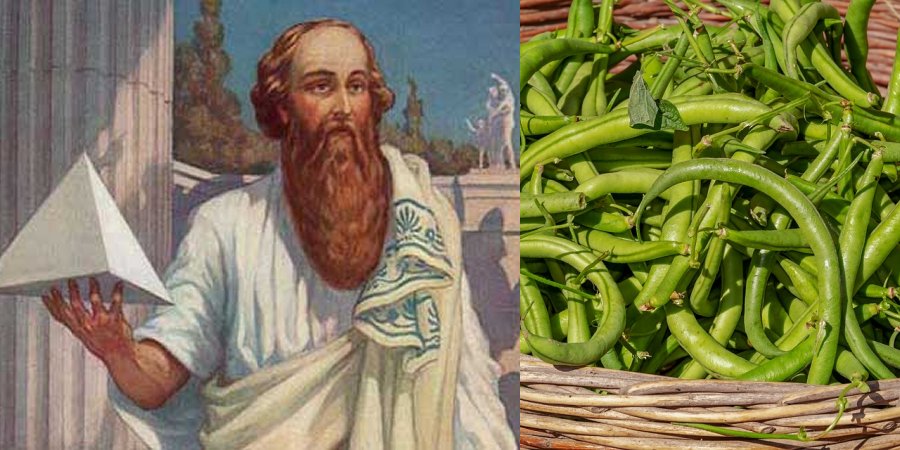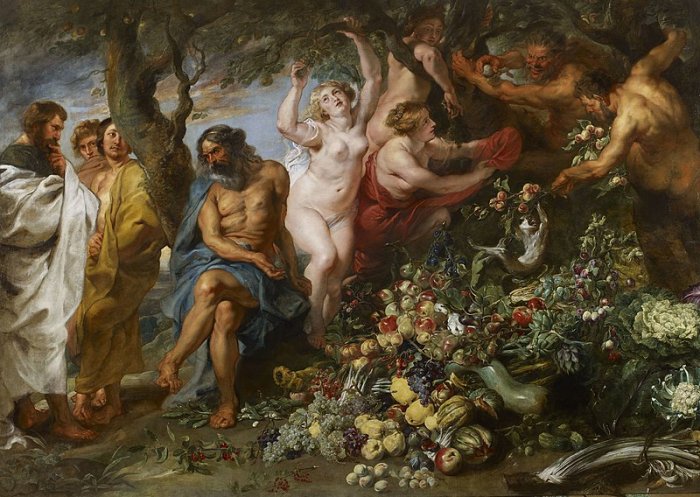Why Didn’t Pythagoras And His Followers Eat Beans?
Conny Waters - AncientPages.com - Pythagoras of Samos, an ancient Greek philosopher who made great contributions to mathematics and founded the Pythagorean School of Mathematics in Cortona, a Greek seaport in Southern Italy, was a vegetarian.
But did you know that Pythagoras abstained from meat and beans? Most vegetarians consume beans, but Pythagoras told his followers they mustn’t eat or even touch beans! Was Pythagoras worried about gastric problems, or did he have a deeper reason for omitting beans from the diet?
Left: Pythagoras. Credit: Famous Mathematicians. Right: Beans. Credit: Public Domain
The reason behind this is not entirely known, but there are certain theories that can provide some light on the great philosopher’s reluctance to beans.
Pythagoras believed that a person should strive for tranquility and peace. Beans were associated with metempsychosis, a philosophical term in the Greek language referring to the transmigration of the soul, especially its reincarnation after death. Pythagoreans believed that beans had the potential for life because they looked like human genitalia or fetuses.
Pythagoras conducted a scientific experiment demonstrating that humans and beans were spawned from the same source. He took some beans and buried them in the mud. They rested there for a few weeks before being removed and investigated by the great Greek philosopher. He concluded they looked like human fetuses.
Like ancient Egyptians, Greeks knew that fava beans could be deadly. Pliny wrote that followers of Pythagoras believed that fava beans were connected to Hades, the Greek God of the Dead, and the Underworld. The plants’ black-spotted flowers and hollow stems served as ladders for human souls and were associated with reincarnation.
Aristotle suggested that the bulbous shape of beans represented the entire universe, which was why beans shouldn’t be consumed.
Cicero proposed another explanation. In his book On Divination, he just wrote that he believed the Pythagoreans didn’t eat beans because they caused flatulence.
Pythagoras advocating vegetarianism. Painting made between 1618 and 1630. Credit: Public Domain
Another theory is that Pythagoras may not have had anything against beans at all. However, beans were used in ancient Greece as a ballot system. White beans represented a yes vote and black a no.
When Pythagoras said to his disciples, "Abstain from beans," he had no reference to them as an article of diet, for he ate them himself, but he advised his students not to get caught up in politics or government.
As H. L. Sumner points out, “what he did mean, and what his immediate followers already understood, was that they should abstain from the intrigues of politics as being antagonistic to a philosopher's pursuits.”
To put it in plain text – We do know that Pythagoras had disapproved of beans, but we simply don’t know what was behind his negative attitude.
Updated on November 24, 2023
Written by Conny Waters – AncientPages.com Staff Writer
Copyright © AncientPages.com All rights reserved. This material may not be published, broadcast, rewritten or redistributed in whole or part without the express written permission of AncientPages.com
Expand for referencesMore From Ancient Pages
-
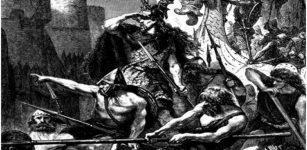 On This Day In History: Viking Forces Laid Siege To Paris – On Nov 25, 885
News | Nov 25, 2016
On This Day In History: Viking Forces Laid Siege To Paris – On Nov 25, 885
News | Nov 25, 2016 -
 Callanish Stone Complex: Sacred Place On The Isle Of Lewis In Scotland
Civilizations | Nov 26, 2018
Callanish Stone Complex: Sacred Place On The Isle Of Lewis In Scotland
Civilizations | Nov 26, 2018 -
 Gryla: Cannibalistic, Evil Troll And Her Sons ‘Yule Lads’ – In Icelandic Folklore
Christmas Traditions | Dec 11, 2019
Gryla: Cannibalistic, Evil Troll And Her Sons ‘Yule Lads’ – In Icelandic Folklore
Christmas Traditions | Dec 11, 2019 -
 2000-Year-Old Tomb Discovered In Northwestern China
Archaeology | Dec 7, 2015
2000-Year-Old Tomb Discovered In Northwestern China
Archaeology | Dec 7, 2015 -
 Legend Of The Ruthven Barracks Where Alexander Stewart Played Chess With The Devil
Featured Stories | Jan 27, 2022
Legend Of The Ruthven Barracks Where Alexander Stewart Played Chess With The Devil
Featured Stories | Jan 27, 2022 -
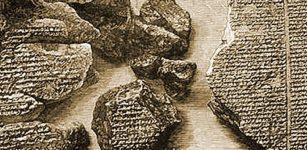 On This Day In History: Chaldean Account Of The Deluge Translated And Presented For The First Time – On Dec 3, 1872
News | Dec 3, 2016
On This Day In History: Chaldean Account Of The Deluge Translated And Presented For The First Time – On Dec 3, 1872
News | Dec 3, 2016 -
 Is This The Earliest Evidence Of First Human Language?
Archaeology | Mar 12, 2018
Is This The Earliest Evidence Of First Human Language?
Archaeology | Mar 12, 2018 -
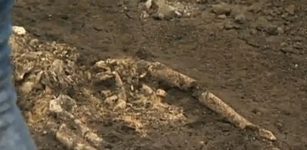 Eastern Necropolis Of Ancient Thracian And Roman City Of Serdica – Unearthed
Archaeology | Apr 10, 2017
Eastern Necropolis Of Ancient Thracian And Roman City Of Serdica – Unearthed
Archaeology | Apr 10, 2017 -
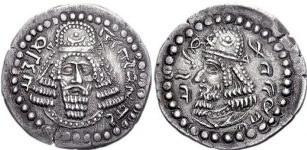 The Rise And Fall Of The Sasanian Empire
Civilizations | Jun 19, 2019
The Rise And Fall Of The Sasanian Empire
Civilizations | Jun 19, 2019 -
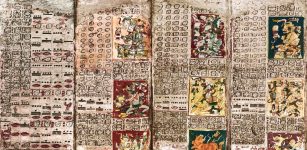 Dresden Codex – Probably The Oldest And Best Preserved Book Of The Maya
Ancient History Facts | Jun 24, 2016
Dresden Codex – Probably The Oldest And Best Preserved Book Of The Maya
Ancient History Facts | Jun 24, 2016 -
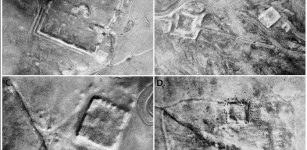 Hundreds Of Undiscovered Roman Forts Revealed By Spy Satellites
Archaeology | Oct 27, 2023
Hundreds Of Undiscovered Roman Forts Revealed By Spy Satellites
Archaeology | Oct 27, 2023 -
 Elk Tooth Rattlers And People’s Dance 8,000 Years Ago
Archaeology | Jun 4, 2021
Elk Tooth Rattlers And People’s Dance 8,000 Years Ago
Archaeology | Jun 4, 2021 -
 Ancient Warming Event May Have Been Trigged By Changes In Earth’s Orbit
Archaeology | Dec 13, 2022
Ancient Warming Event May Have Been Trigged By Changes In Earth’s Orbit
Archaeology | Dec 13, 2022 -
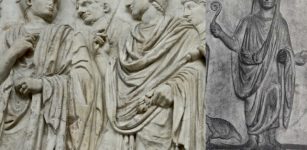 5 Different Types Of Priests In Ancient Rome – Their Role And Responsibility Explained
Ancient History Facts | Jan 30, 2018
5 Different Types Of Priests In Ancient Rome – Their Role And Responsibility Explained
Ancient History Facts | Jan 30, 2018 -
 Preserve Elfdalian: Sweden’s Secret Forest Language From The Viking Era
Civilizations | May 21, 2015
Preserve Elfdalian: Sweden’s Secret Forest Language From The Viking Era
Civilizations | May 21, 2015 -
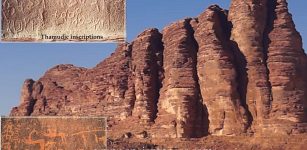 Thousands Of Petroglyphs And Inscriptions In Wadi Rum, Jordan – 12,000 Years Of Human Occupation
Civilizations | Oct 23, 2018
Thousands Of Petroglyphs And Inscriptions In Wadi Rum, Jordan – 12,000 Years Of Human Occupation
Civilizations | Oct 23, 2018 -
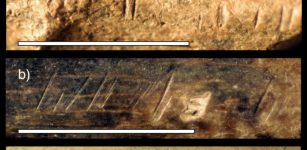 Humans’ Evolutionary Relatives Butchered One Another 1.45 Million Years Ago
Ancient Symbols | Jun 26, 2023
Humans’ Evolutionary Relatives Butchered One Another 1.45 Million Years Ago
Ancient Symbols | Jun 26, 2023 -
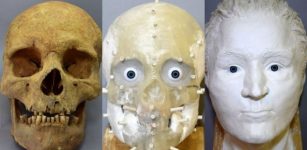 Face Of Man From The Lost Medieval Village Of Dzwonowo Reconstructed Using 3D Printing Technology
Archaeology | Jul 20, 2020
Face Of Man From The Lost Medieval Village Of Dzwonowo Reconstructed Using 3D Printing Technology
Archaeology | Jul 20, 2020 -
 Mysterious Grave Of King Valdemar IV Atterdag – Will The 600-Year-Old Historical Puzzle Ever Be Solved?
Featured Stories | Jul 14, 2018
Mysterious Grave Of King Valdemar IV Atterdag – Will The 600-Year-Old Historical Puzzle Ever Be Solved?
Featured Stories | Jul 14, 2018 -
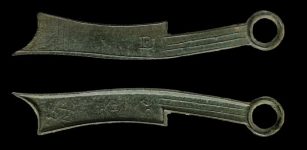 Scientists Decipher 2,300-Year-Old Chemistry Formulas Revealing Ancient Metallurgy Was More Complex Than Previosuly Thought
Ancient Technology | Aug 10, 2022
Scientists Decipher 2,300-Year-Old Chemistry Formulas Revealing Ancient Metallurgy Was More Complex Than Previosuly Thought
Ancient Technology | Aug 10, 2022

